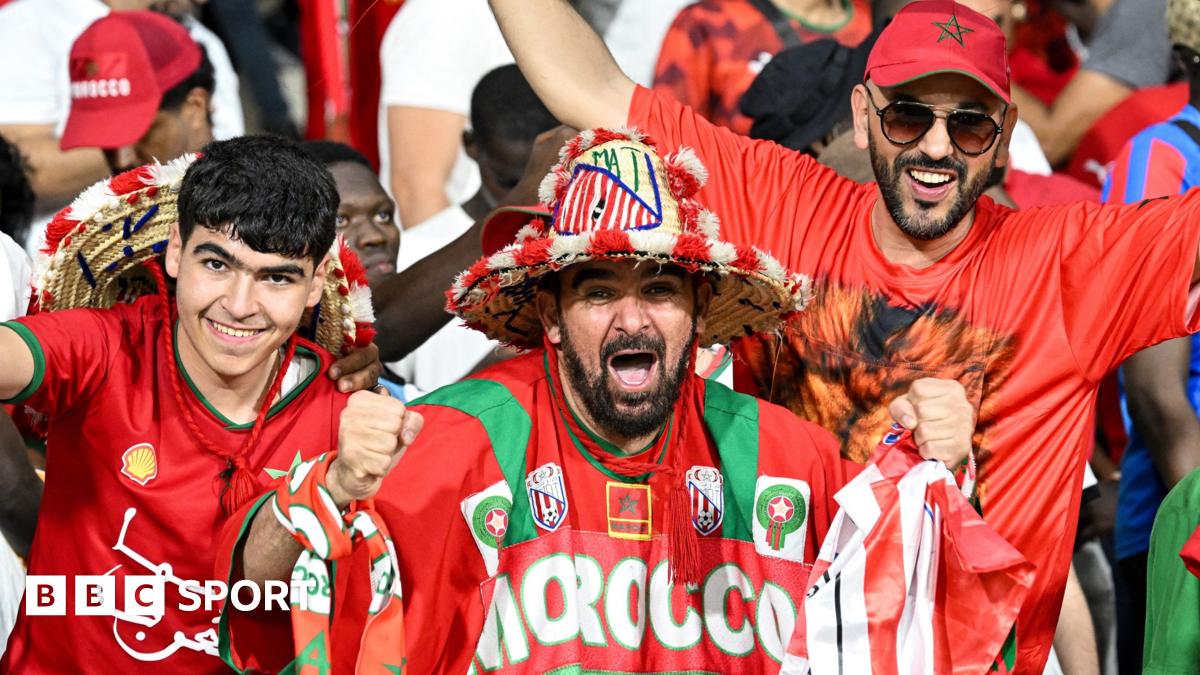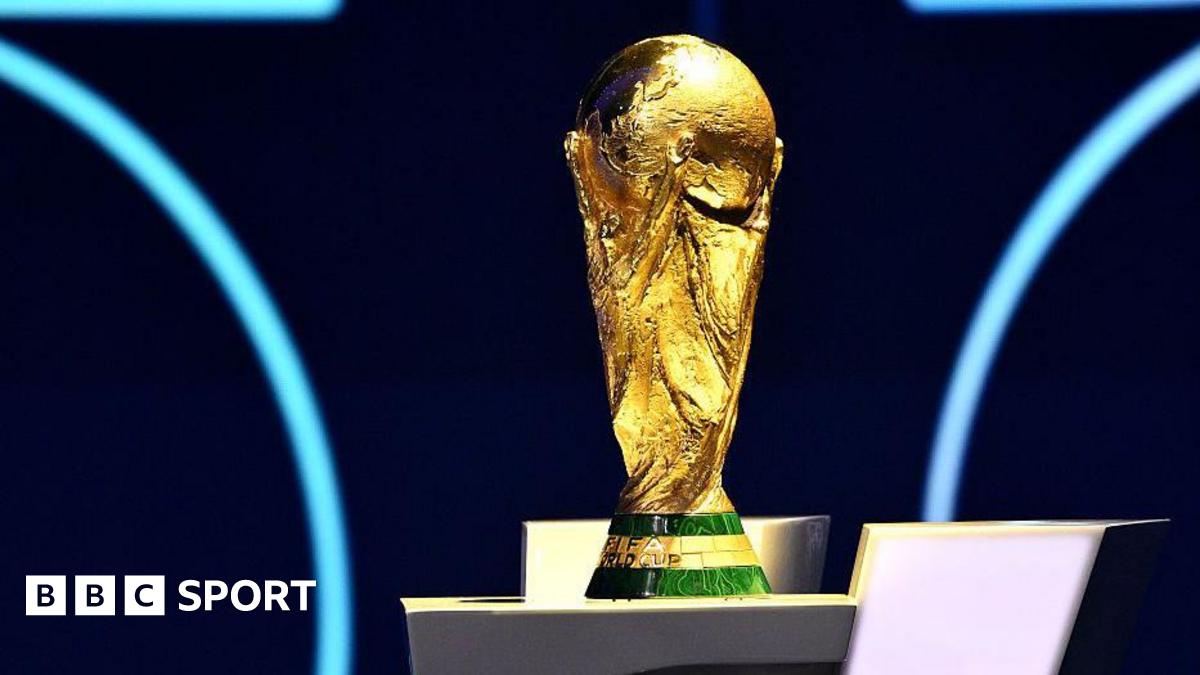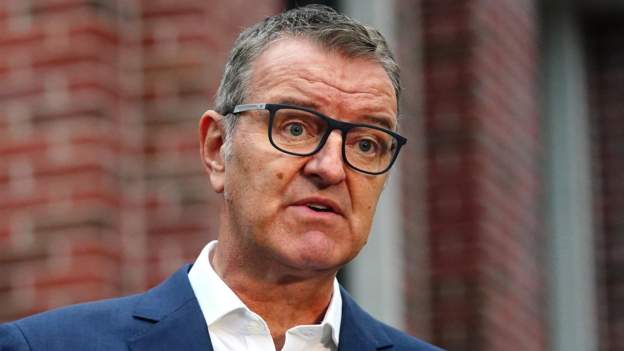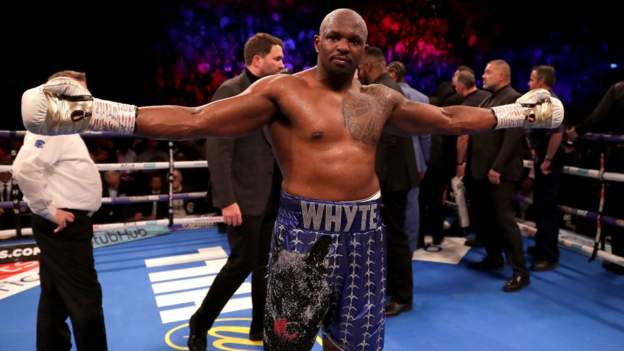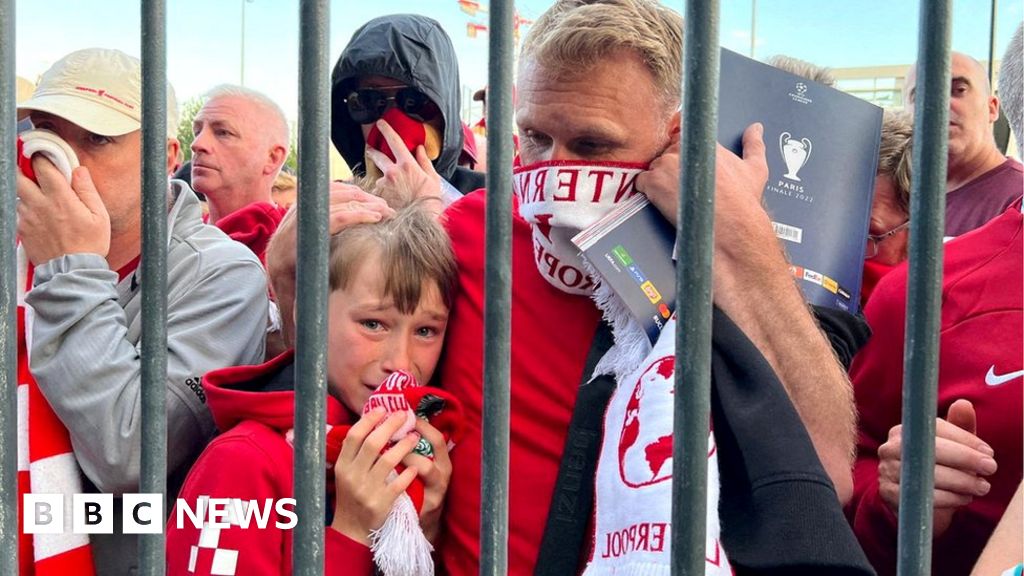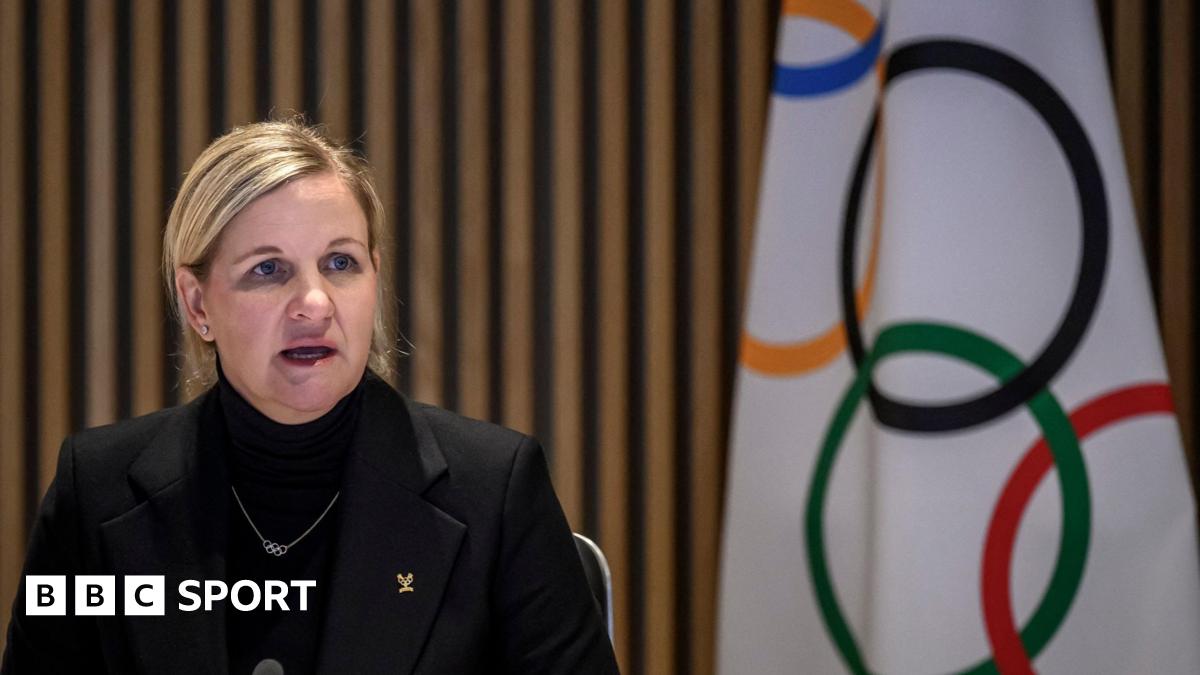Cricket must “find some compromise” over “radical” plans to overhaul the domestic calendar amid opposition from counties, says England and Wales Cricket Board chair Richard Thompson.
He said plans to cut the number of matches was “a sacrifice I’m prepared to try to sell to the counties”.
But he added “whether some of the proposals being suggested are a bridge too far needs to be decided”.
Any changes must be agreed by two-thirds of the 18 first-class counties.
Thompson, the most powerful figure in the English game who took over last month, warned that international cricket is now facing an “existential problem” with the “threat” of overseas Twenty20 franchise leagues luring top players away.
“We are foreseeing that as a challenge,” he said. “We can’t allow that to play out.”
In a wide-ranging interview, Thompson also told BBC Sport:
- There is “too much cricket” in an “untenable” international calendar
- The Hundred was “a big risk that is starting to pay off” but the game had to prevent “one competition cannibalising another”
- His new job meant “the biggest target on my back of any role that I had before”
- English cricket “needed to win back trust rapidly” after the Yorkshire racism scandal and have “a reset”
- He will “build bridges” between the ECB and England’s players and “take away that sense of a transactional relationship” after criticism by captain Ben Stokes
Radical change
The ECB’s high-performance review, led by Sir Andrew Strauss, has suggested reducing the number of championship and T20 matches that counties play from 14 to 10 in a bid to improve the England men’s side.
The top division would be cut to just six teams, with dedicated windows for the One-Day Cup, T20 Blast and The Hundred.
But the proposals have sparked division with a number of counties vowing to oppose the changes on behalf of their members, and Thompson has now hinted the plans could be watered down.
“This is a high-performance review to create a thriving domestic structure and ensure that England reach the top,” said the former Surrey chairman. “That requires radical change.
“I remain a champion of the counties, and we need to find some compromise here to ensure that the counties come onside and see the need for change.
“If we have the best players continually available and England are winning in all formats, and we have to sacrifice some cricket for that, then I truly believe that’s a sacrifice that I’m prepared to try to sell to the counties.
“But I do fully sympathise with where they are because they represent their members.”
Thompson said compromises needed to be sought but added he “did not want division in the game”.
“I want people to come together and agree a way forward,” he said.
“I think we will resolve this because people understand that pressure from outside leagues now. We need a solution and a better schedule.”
‘Existential problem’
Thompson insisted English cricket had to act because of the “threat” of overseas T20 tournaments luring players away from international cricket.
“We have never had a situation where a player could be offered a central contract by England and reflect on whether they want to sign it – that’s unprecedented,” he said.
“We are foreseeing that as a challenge, particularly as you’re looking at singular owners owning multiple teams, so you could sign to one owner and play in their three sides. Follow the sun – be like a golfer, or a tennis player and be on their tour as opposed to playing for England… it’s a threat.
“We have to have a schedule that protects certain parts of our season. We need to somehow find that balance, which is why things being suggested are so contentious.”
The ECB commissioned the review after England’s disastrous Ashes tour of Australia last winter which ended in a 4-0 defeat.
It hoped to have a final decision by November with an intention to implement the changes in time for the 2024 season.
The ECB also hopes a revised schedule will allow a greater balance between red- and white-ball cricket, produce higher-quality matches, and ease the strain on players’ workloads.
“This is a democratic process,” said Thompson.
“That process may take longer than we hoped for, but the most important thing is we get the right outcome for the game. We don’t rush it.”
‘Too much cricket’
Earlier this year England all-rounder and Test captain Stokes retired from one-day internationals and Thompson admitted there was now “too much cricket” in the “extraordinary” international calendar, and that it had become “untenable”.
“We have a duty of care to our players – their physical health as well as their mental health,” Thompson said.
“And we don’t want someone like Ben Stokes, the best player in the world at the time, to have to make that decision.”
Thompson hailed Stokes’ “extraordinary” and “compelling” approach to the game after leading a resurgent England side this summer and said he had met him in an attempt to “build bridges”.
Stokes said he had to be talked out of quitting international cricket after feeling let down by the ECB following his arrest in Bristol in 2017.
Thompson opposed the introduction of The Hundred tournament when at Surrey, but two years after the tournament was launched, he admits elements of it have won him over, albeit with a cost to other formats.
“Cricket is paying a big price for four competitions, that’s for sure,” he said.
“I think it will be worth it because of the financial gain, which is an important part of the reason why The Hundred was put together, and reaching a new audience which has such a significant value. It’s been a revelation for women’s cricket.
“There are still lots of creases to iron out. It’s not perfect by any means, but it’s proven that there is something worth pursuing there.
“I don’t want to see other brands diminished as a result of The Hundred so, as an example, we cannot allow the Blast to struggle.
“Hopefully I can ensure that the Blast is invested in as well as The Hundred and you don’t have one competition cannibalising another.
“The game needs to work very hard to ensure that isn’t the case.”
Meanwhile, the ECB has offered to host Tests between India and Pakistan.
The two rivals have not played each other in Tests since 2007 because of political tensions, but have met in white-ball tournaments.
Despite the ECB offer, it is thought it would take a shift in political mood for the two to play Test cricket anywhere. Pakistan have only just had Tests return to their own country, so would be reluctant to once again shift to a neutral venue.
‘Challenging moment’
The ECB is bracing itself for the publication of a report by the Independent Commission for Equity in Cricket (ICEC) report – an inquiry into discrimination in the game amid the continuing fallout from the Yorkshire racism scandal.
Last year former Yorkshire player Azeem Rafiq said English cricket was institutionally racist.
“That will be a challenging moment for the game,” said Thompson. “That will not be easy reading.”
Thompson was in charge at Surrey when the county launched the African-Caribbean Engagement (ACE) programme with chair Ebony Rainford-Brent, which engaged young people from more diverse communities in south London.
“My vision is very clear that cricket will become the UK’s most inclusive sport,” Thompson said. “And it needs to do that rapidly, and it needs to win back trust. I feel it has an opportunity that no other sport has, in a sense that cricket reaches minorities and communities that no other sport finds.”
With independent disciplinary commission hearings for the Yorkshire scandal scheduled for next month, Rafiq is understood to be considering whether to appear as a witness unless the process is held in public.
“All of us in the game want to ensure that Azeem can get closure on this, and that those who have been accused of things can be tried properly,” said Thompson.
“I think going into this process, any witness would have been told and understood that it would be in private. So for it now to be in public would be a change and would require every witness and everyone to agree to that and I don’t know how that will play out.
“I think it’s very important after a year that this case is heard, and the decision is reached on how we’re going to move on.”




